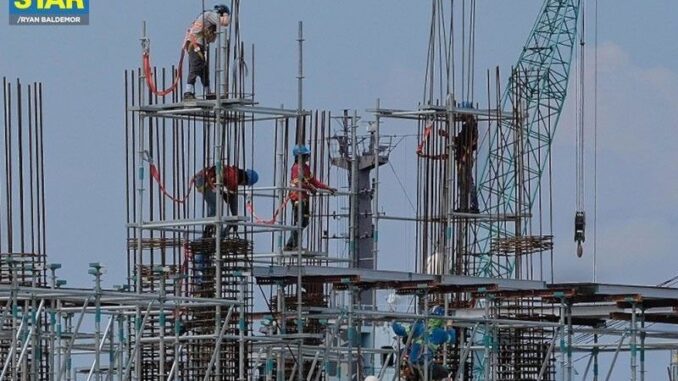
MANILA, Philippines — The Marcos administration increased its infrastructure spending by 13 percent to P125 billion in July, largely to fund road and defense projects, according to the Department of Budget and Management (DBM).
Based on the latest national government disbursement performance report of the DBM, state infrastructure expenditure and other capital outlays expanded by 12.5 percent to P124.9 billion in July from P111 billion in the same period last year.
The DBM attributed the increase to the sizable disbursements of the Department of Public Works and Highways (DPWH) for the construction of roads, bridges, flood control structures, hospital buildings and multi-purpose building projects.
Significant disbursements were also noted for the implementation of capital outlay projects under the Revised Armed Forces of the Philippines Modernization Program of the Department of National Defense.
The government also spent for the implementation of locally funded projects under the Payapa at Masaganang Pamayanan program of the Office of the Presidential Adviser on Peace, Reconciliation and Unity such as road networks, flood control and water supply systems.
For the seven-month period, infrastructure spending picked up by nearly 20 percent to P736.7 billion from P618.2 billion a year ago.
The DBM attributed the increase to the strong spending performance of the DPWH as it ensured the timely delivery of ongoing and carryover projects, prioritization of the settlement of pending payables from prior years and the streamlined procurement procedures.
Overall government spending for July increased by 5.8 percent to P486.2 billion from P459.5 billion a year ago.
Apart from infrastructure, the government also recorded higher maintenance and other operating expenses at P91.1 billion due to the implementation of social, health and education-related expenditures.
Combined allotment and capital transfers to local government units grew by 12.2 percent to P86.2 billion
following the releases for the special shares of local government units (LGUs) in the proceeds of national taxes specifically from renewable energy.
This was also due to higher national tax allotment shares of LGUs and annual block grant to the Bangsamoro region.
Interest payments also increased by 25 percent to P79.4 billion due to coupon payments for fixed rate Treasury bonds, as well as the effect of higher Treasury bill rates.
On the other hand, a decrease in government spending was similarly noted in subsidy support to state-run corporations, which went down to P10.7 billion due to the timing of releases to the Philippine Health Insurance Corp. considering their current financial position and substantial cash holdings.
There were also no releases to the National Housing Authority in July.
Same month last year, it received P3.3 billion in subsidies.
Net lending also slid by P5.4 billion due to the change in the maturity profile of National Food Authority (NFA)’s debt obligations.
The DBM said NFA initially requested for advances in July this year. However, some of the documentary requirements were not yet available prompting the agency to roll over its debt and the maturity was moved to September 2024.
In addition, the repayments made by the Home Guarantee Corp. amounting to P1.1 billion contributed to the lower net lending outturn.
As of end-July, the remaining program balance amounts to P333.6 billion or 5.8 percent of the record P5.768 trillion 2024 budget.
According to the DBM, disbursements in August had likely been muted on account of the different timing or schedule of big-ticket payables of line departments and agencies.
Nevertheless, spending is expected to have picked up again this September as agencies try to catch up with their respective spending plans and utilize their remaining cash allocations.


Be the first to comment